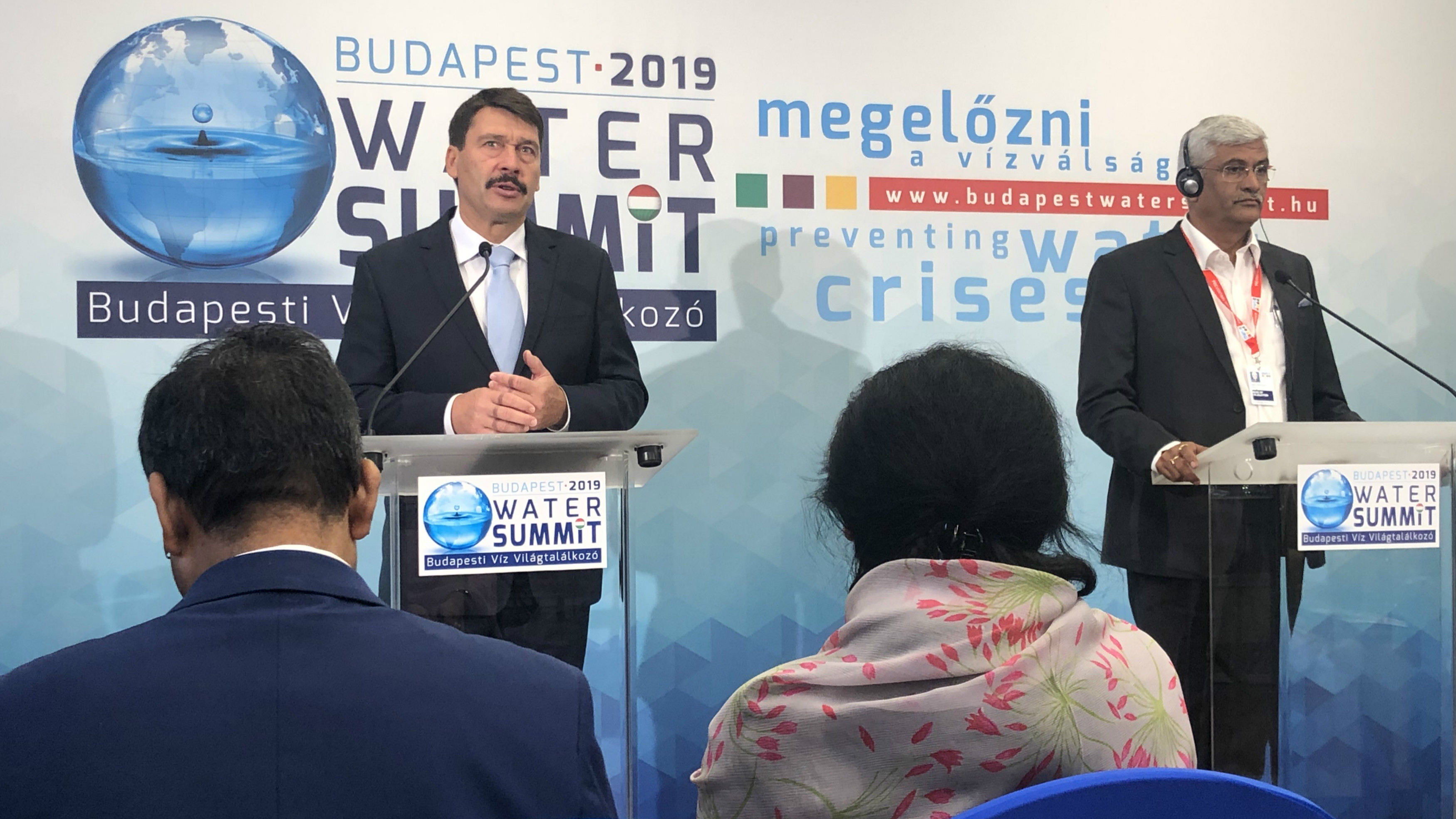03:01

More than 2,000 experts, government ministers and finance chiefs have gathered in Hungary's capital, Budapest, for a water summit.
António Guterres, United Nations secretary-general, has warned the race against climate change is being lost and many scientists say water is central to this issue.
"This isn't a drama of water, it's a drama of humanity," Hungary's president, János Áder, told a news conference at the summit.
This is the third time Budapest has hosted a water summit. The first was in 2013, with the second three years later. Speakers at this year's summit warned that over the past six years, water crises have worsened.
"Water scarcity is not just about non-availability of drinking water, it also increases the risk of conflict and migration," Indian minister Gajendra Singh Shekhawat told an audience in the opening session of the three-day summit.

This is the third water summit held in the Hungarian capital. The first was held 2013. (Credit: CGTN)
This is the third water summit held in the Hungarian capital. The first was held 2013. (Credit: CGTN)
This year's summit focuses on the theme of preventing water crises. To achieve that, speakers at the summit said attention needs to be paid to water insecurity, an abundance of the resource and pollution.
Shekhawat said India is one of the few nations in the world that suffers from flooding, drought and pollution. Speaking at the summit he said the country had mismanaged water in the past and pointed to the agriculture sector as an industry that could use the resource more efficiently in the future.
But a key message from speakers at the summit was that a global approach to mitigating the water crisis is needed.
Save the Children estimates that 13 million people in the Horn of Africa are facing extreme hunger because of drought. Climate experts have also warned that climate change could bring more intense rainfall and stronger storms.
"I find it very useful and effective that we can mobilize the whole world in a meaningful way here in Budapest to speak and talk about the water, how we can make it fit for the future, how we can protect it and how we can make it available and accessible for all citizens," Norbert Kurilla, Slovakia's environment minister, told CGTN Europe.

Organica's water treatment plant in Budapest. The company says using vegetation is cheaper and more environmentally friendly than other methods of water cleaning. (Credit: CGTN)
Organica's water treatment plant in Budapest. The company says using vegetation is cheaper and more environmentally friendly than other methods of water cleaning. (Credit: CGTN)
The summit hopes to bring fresh financing pledges and new ideas to the table. Companies have also been invited to the water summit to showcase initiatives designed to tackle the water crisis.
Hungarian firm Organica is one of businesses present at the summit. It has a water treatment plant in Budapest and prioritizes the use of vegetation in the cleaning process.
"Compared to the traditional waste water treatment plants, it's much smaller, much more efficient, and beautiful – that's a very important requirement," said Attila Bodnar, co-founder of Organica. "And, of course, it doesn't smell."
Journey down the Danube with CGTN's in-depth reporting experience